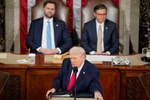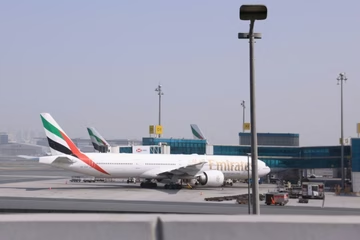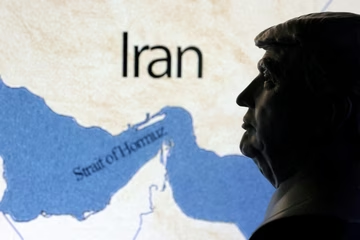DPC: Berlin must take the wheel in Bosnia after US sanctions

While the new sanctions against Bosnian officials threatening the country’s stability will not change much by themselves, they do provide an opportunity for Germany to take over and get the EU’s policy towards the Western Balkans and BiH out of a dead-end and finally demand accountability from local leaders, the Democratization Policy Council said Thursday.
Oglas
The announcement of US sanctions on Bosnian Serb Presidency member Milorad Dodik and his associates is a welcome bit, there is little “new” here, except for the messaging, the Council said.
“It is highly improbable that these sanctions alone will affect Dodik’s calculus or behavior. Furthermore, combining a response to Dodik’s threats to the state with corruption (which is the operating system in BiH across the board) mixes messages,” they said adding that “these sanctions DO provide an opportunity for a course correction for the US, EU member states, and UK away from a retrograde appeasement policy which has abetted Dodik (and the Croat Democratic Union – HDZ BiH leader Dragan Covic). This has reached a new low with the EU Enlargement Commissioner Oliver Varhelyi’s Package.”
As the DCP previously explained, EU member states CAN apply the restrictive measures to which they agreed in 2011 by qualified majority vote: 55% or members (15), representing at least 65% of the EU’s people.
“Such a coalition to apply sanctions would have far broader impact in BiH and the Western Balkans, where EU’s illiberal kingpin Orban is allied with the Dodik and Serbian President Aleksandar Vucic – as well as their “friends” in Moscow. There are compelling reasons beyond BiH to use this opportunity to draw a line,” they said.
If this critical mass is to be achieved, the Council notes, German Foreign Minister Annalena Baerbock would need to lead the charge and be the aggregator. This provides the German Chancellor Olaf Scholz’ government with a leadership opportunity on rule of law and democratic values that were the glue in the coalition agreement.
A real course correction must confront threats to the state, prevents further regression, and begin exacting accountability.
“In BiH, this means abandoning the Oliver Varhelyi Package, restoring deterrence, and setting the stage for a bottom-up reconstruction of BiH’s democratic architecture. This would follow elections to be held under current rules – but with greater deterrence of fraud and patronage - in October,” the DCP believes. “So while the US announcement of repackaged sanctions won’t in themselves change the trajectory, they offer a window of opportunity for Germany to assert a leading role in pulling the EU’s BiH and WesternBalkan policy out of the dead-end into which it has been driven.”
Berlin must take the wheel, the Council concluded.
Kakvo je tvoje mišljenje o ovome?
Učestvuj u diskusiji ili pročitaj komentare
Oglas
Kakvo je tvoje mišljenje o ovome?
Učestvuj u diskusiji ili pročitaj komentare
Oglas





 Srbija
Srbija
 Hrvatska
Hrvatska
 Slovenija
Slovenija



























































